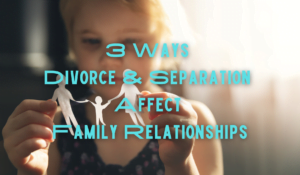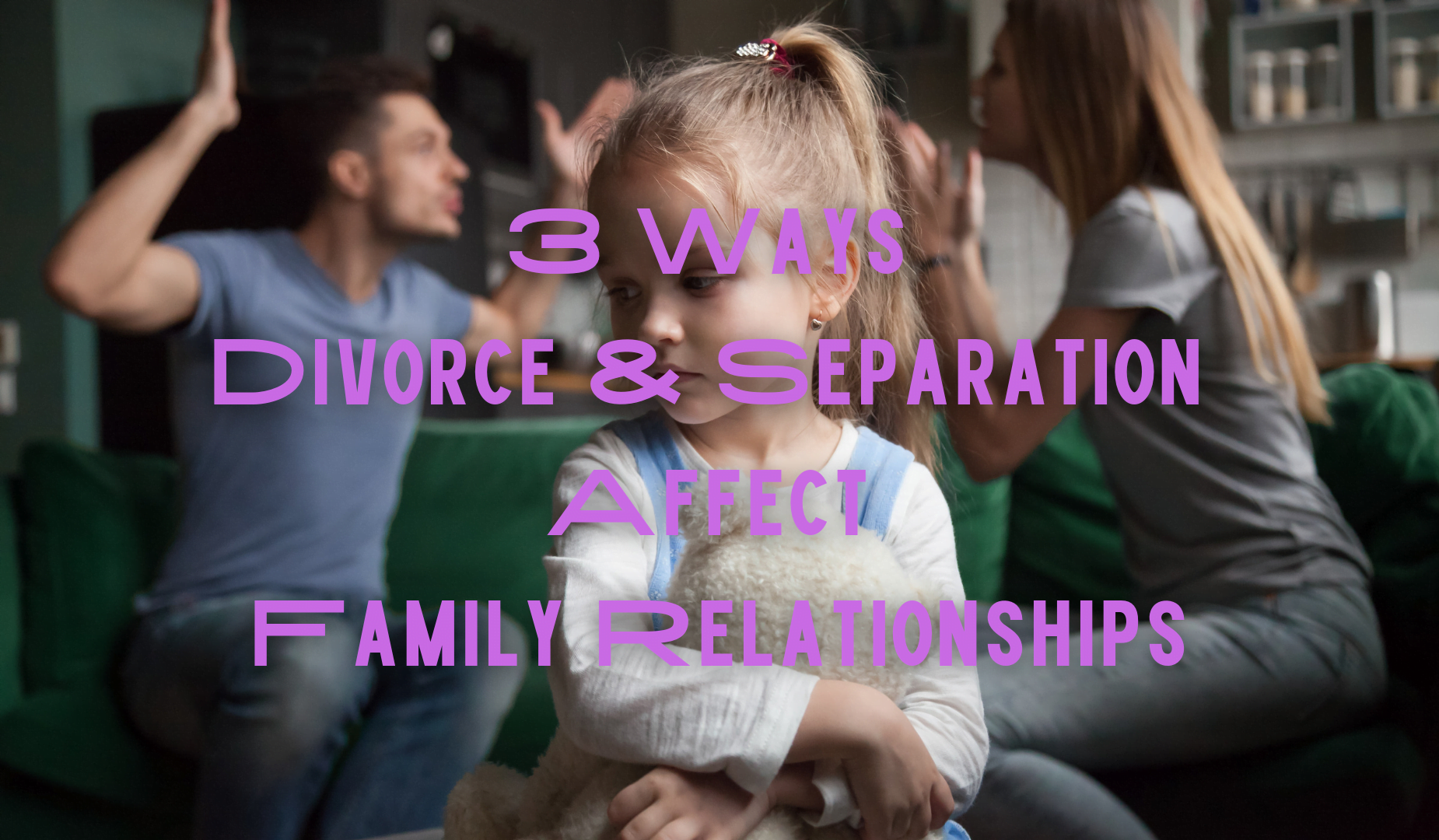One of the most challenging experiences in life is coping with a divorce or separation in your family. In addition to the parents or couple, this also affects the other relationships and dynamics between the other family members. The degree to which divorce and separation impact the people involved varies for each family and individual. Some children tend to react in a natural and understanding way, while others may struggle with this major transition.
Once a couple decides to finalize their divorce and separation, they need to establish new ways to parent their children and manage their families separately. This process can be complicated for everyone involved; thus, it’s recommended to consult family lawyers.
There are no set rules for how you approach your divorce or separation and what adjustments you need to make for your family. However, it can be helpful if you also understand how this divorce or separation will affect the people around you. With this in mind, here are three ways divorce and separation can affect family relationships:
Parent-Child Relations
Once parents get divorced or separated, the most affected relationship is the connection between the children with their parents. The stress caused by the separation often causes a decline in this relationship in the following ways:
Lack Of Support
Children of divorced or separated parents may receive less support than those who live with parents in intact marriages. That’s because when parents are divorced or separated, the couple has to live in separate homes, resulting in children having to visit each parent’s home regularly. It can also work the other way, wherein the other parent will be the one who’ll visit their children, depending on the agreed terms. This new parenting approach may cause children to receive less financial assistance, emotional support, and hands-on parenting.
For instance, if one parent decides to stop providing financial support to their children, the other parent might be forced to juggle two to three jobs to support the family. This will result in the parent having to spend more time at work than with the children, leading to a lack of emotional support and hands-on parenting. Thus, one of the principal reasons some couples avoid divorce is to ensure the growth and development of their children won’t be affected.

Trust Issues
Parental separation and divorce may also result in children having difficulty trusting their parents. This is often due to the decline of closeness between parents and children. This can happen especially if one of the parents often neglects to see and bond with their children regularly, or if one or both parents intentionally or unintentionally fail to visit their children on the agreed schedule.
Early Departure From Home
It’s common for children to move out of their parent’s house once they reach the legal age or if they’re financially stable and ready to live on their own. However, children of divorced or separated parents may be more triggered to depart from home at an earlier stage, especially if the separation disrupted the family’s harmony and coherence. As the separation brings more unhappiness, the earlier these children may move out of their homes to live independently.
Siblings Relations
The second most affected family relationship after the parental divorce or separation is the relationship between siblings. Unfortunately, there are some divorced or separated parents who end up forcing their children to choose sides. For instance, the eldest child may be forced to go and live with their father while the youngest children are left with the mother. These significant changes in the family structure won’t only bring adverse effects to the family’s unity but may also strain the relationships between the siblings. This may cause them to grow separately and have less to no time to bond as a family.
Moreover, the parents’ separation may cause the siblings to find other ways to cope with the stress separately. Since the family will have fewer opportunities to bond, each child will seek fellowship and company from the outside world, such as with their friends, different partners, colleagues, or anyone that won’t remind them of the brokenness of their family.
Grandparent-Grandchild Relations
According to research, another family relationship that may be affected by parental divorce or separation is the relationship between grandparents and grandchildren. Paternal grandparents often cease to visit or even contact their grandchildren, especially if the grandparents’ son also ceases to see or bond with his own children or when he’s not the one with custody over them. The same goes for maternal grandparents if the mother also ceases to bond or visit her children.
Meanwhile, the grandparent-grandchild relationship may be less affected if the grandparents’ son or daughter is the sole parent left to take care of the children. For instance, if the mother gets to keep the children with her more often, the maternal grandparents may still stay in touch with their grandchildren. Some may even volunteer to look after their grandkids, especially if the mother is often unavailable due to work. The same goes for paternal grandparents if the father gets to keep the children with him.
Endnote
Understandably, divorce or separation can be a stressful situation not only for the couple but also for the children and other family members. Thus, it’s essential for parents to be aware of how their divorce or separation can affect family relationships and figure out healthy approaches to ensure these relationships remain strong and intact.
